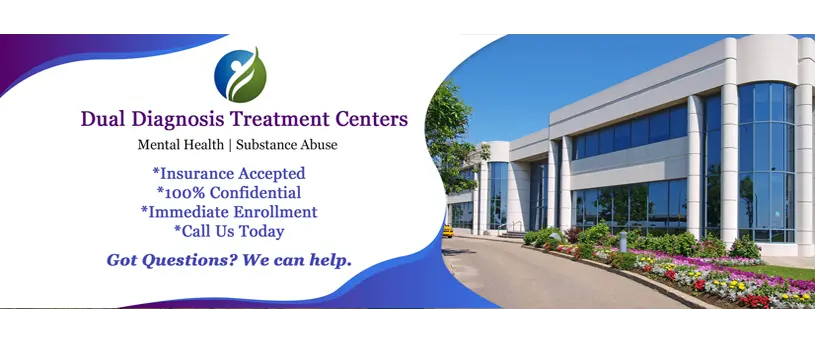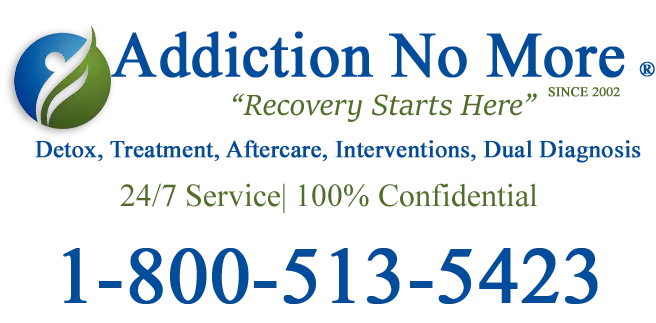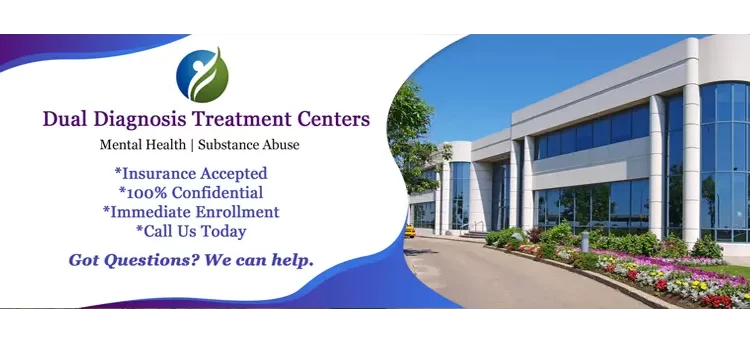Dual Diagnosis Treatment Programs
Dual diagnosis is the condition of having a mental health issue and substance use disorder at the same time. Dual diagnosis is sometimes referred to as co-occurring disorders or comorbidity. The term “comorbidity” describes two or more disorders occurring in the same person. They can occur at the same time or one after the other. Comorbidity also implies interactions between the illnesses that can worsen the course of both. Addiction treatment wellness programs are tailor-made to address the co-occurring mental and substance abuse disorders specifically. Many of the dual diagnosis treatment centers treat the individual by using an integrated approach, working with both psychological and alcohol or drug dependency. Dual-diagnosis treatment programs are a relatively new approach to treating addiction and have gained acceptance and significant results in treating co-occurring substance disorders.Dual-diagnosis treatment for addiction became more mainstream for the treatment of co-occurring addiction and mental disorders in the early ’90s. Before this type of treatment was available, there was no supportive evidence to even consider that there could be an underlying disorder that led to the addiction. Looking at the root causes and handling the underlying mental disorder has come a long way in treating addiction.
Please contact us by phone for immediate assistance. This is a necessary step in beginning the recovery process for yourself or for a loved one. Our addiction treatment specialists and staff have over 25 years of experience in helping people find effective and affordable treatment for all addictions. What you tell us is completely confidential. We are HIPAA compliant. We are here to answer your questions and to get you (or a loved one) into an Addiction Treatment Wellness Program today. For immediate intake, call us now.
1-800-513-5423
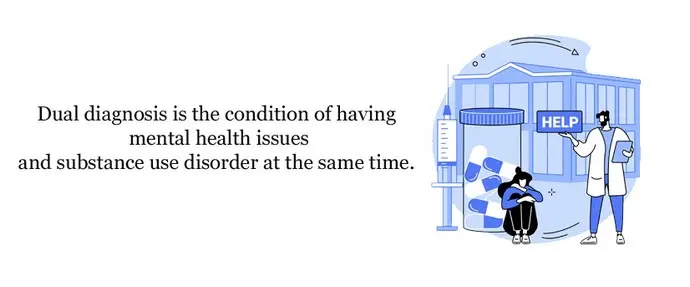
What to look for in a dual diagnosis program
While searching for a dual diagnosis treatment program, make sure that the center has all the facts regarding the client. Many times, it is necessary to “wipe the slate clean”, meaning that a client may need to come off of all medications first before continuing their current medication regimen. Many people have been put on medication by their family doctor or psychiatrist without disclosing the fact that there has been drug usage going on at the present time. Once the client has been clean and stable for 30 days or so, this is when the see the real person starts to come out and helps the doctors, psychiatrists, staff, and counselors know exactly what is going on with the patient. It is at this point in treatment that a determination is made if there is a need for medications to handle the underlying mental disorder or addiction problem.Form and function
For a client to succeed in a dual diagnosis addiction treatment wellness program there has to be self-motivation and a desire to get better. The doctors and treatment teams must be able to work together seamlessly through a coordinated treatment approach without having to consult different departments. The approach only works through a unified effort and a co-joined treatment team.It is sometimes beneficial for the client to go to treatment further away from home. Getting away from temptations and friends who may still be using is often better for many people. Clients who go to rehab in another state also have a harder time leaving treatment early as well. Depending on the situation, our counselors may suggest looking for substance abuse programs that are a plane flight away. Call us today to discuss enrolling in treatment for underlying mental disorders and addiction issues. We can help.
1-800-513-5423
FACTS:
*Underlying mental conditions need to be addressed at the same time as treating the addiction problem.*There is significant evidence that shows that almost one-third of alcohol abusers and almost half of all drug addicts have a co-occurring underlying disorder.
*Persons with a psychological disorder are twice as likely to self-medicate and develop either an addiction to alcohol or drugs.
*Dual-diagnosis patients will have a harder time dealing with addiction than patients who do not have a co-occurring mental disorder. Individuals who have a mental illness and a co-occurring substance disorder have higher rates of suicide and homelessness.
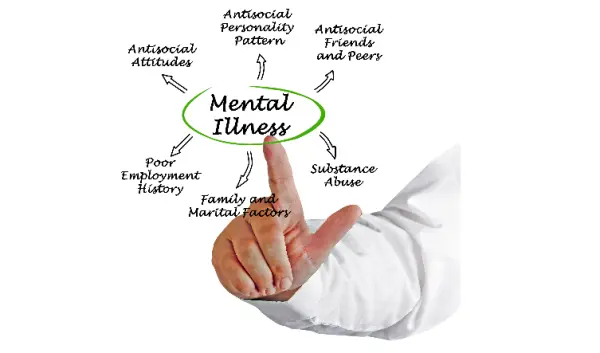
Mental Illness and Addiction can cause other issues in your life such as Antisocial Personality Patterns, Antisocial Friends and Peers, Substance abuse, Family and Marital Factors, Poor Employment History, and Antisocial Attitudes.
Types of therapies offered may include:
Cognitive Behavior Therapy (CBT)
Cognitive Behavior Therapy focuses on finding out exactly what needs to be changed and what doesn’t and then works by targeting those areas. People who come for therapy need to change something in their lives, whether it is how they feel, how they act, or the way other people treat them. In Cognitive Behavior Therapy, the therapist doesn’t settle for just nodding wisely while you carry the whole burden of finding the answers you came to therapy for. The therapist takes an active part in helping you to solve your problems. It is important that at the beginning of the treatment, a diagnostic workup is made to make sure that your needs and problems have been pinpointed as well as possible. This step is most crucial and it is often skipped or omitted altogether in traditional kinds of therapy. Without this step, it would be impossible to make an explicit, understandable, and flexible treatment plan that would accurately reflect your own needs. CBT in this respect, resembles education, coaching, or tutoring. Under expert guidance, you will share in setting the treatment goals and deciding which techniques work best for you.
Dialectical Behavioral Therapy (DBT)
Dialectical Behavioral Therapy also known as DBT maintains that some people, due to their environment, during their early years, and also due to biological factors, are more apt to react abnormally to emotional stimulation. This type of person is more prone to have their arousal level stimulated more quickly and have that sense peak at higher levels. It also takes more time for this type of person to return to a normal baseline. This is why some people have crisis-strewn lives and EXTREME EMOTIONAL LIABILITY (emotions that shift rapidly). It has also been noted that this person does not possess methods for coping with these sudden intense surges of emotion. DBT is a method for teaching skills that will help with this task.MRT (Moral Reconation Therapy)
Moral Reconation Therapy or MRT is a systematic step-by-step treatment strategy designed to enhance self-image, promote the growth of a positive, productive identity, and facilitate the development of higher stages of moral reasoning. MRT has been extensively researched and proven effective in populations with a high rate of antisocial behaviors. MRT seeks to re-educate clients socially, morally, and behaviorally to instill appropriate goals, motivation, and values. Studies have shown that this program significantly increases the participant’s odds of success. MRT is an open-ended program allowing clients to enter the program at any point in their supervision.PTSD Treatment Centers and Residential Trauma Centers
There are many new therapies for treating PTSD and addiction together. These programs have been proven to treat the symptoms and the cause of PTSD, all of which will help in the treatment and handling of PTSD with addiction in those seeking help. Depending on the facility and the training of the therapists, most facilities are experienced in treating some of the symptoms of PTSD, if not all of them. Therapy models and practices that can be included in a program for PTSD and trauma can include Cognitive Behavioral Therapy (CBT), Eye Movement Desensitization and Reprocessing (EMDR), meditation and mindfulness training exercises, group processing, individualized therapy, Biofeedback, and neurofeedback. All of these therapy models have proven to help with the treatment of PTSD and trauma in both women and men.Motivational Interviewing
Motivational interviewing when used for substance use disorders incorporates a therapeutic approach to treatment that addresses your resistance to change while working to increase your motivation to accept change in your behavior. It is designed to help reinforce a person’s motivation towards a specific goal by exploring a person’s reasons for change while in an environment of acceptance, compassion, and collaboration.Biofeedback & Neurofeedback Therapy
Biofeedback, also known as neurofeedback, uses an EEG machine to gather information about the brain by monitoring brain wave activity. Using technology, the device sends information through electronic sensors and software that can read the incoming brainwave data. This allows for the professionals to map the brainwave activity. It helps the expert develop and understand which neuro pathways have become blocked or deregulated in the individual like a person who has been recovering from drug addiction.
Medicated Assisted Treatment (MAT) Services
MAT Services or Medicated Assisted Treatment are programs that provide medications to ease withdrawal symptoms while undergoing counseling to help people who have to rely on their medications to get by from day to day. People who have become dependent on their opioids, heroin, or alcohol can benefit from MAT services in their area. These programs have proven to be effective in helping lower the overdose rate in the country as well as saving lives. Studies have shown MAT services are safe, reduce overdoses, increase treatment retention, and improve social functioning. The main goal of MAT programs is to help people make a full recovery, and be productive and independent while undergoing treatment for substance misuse.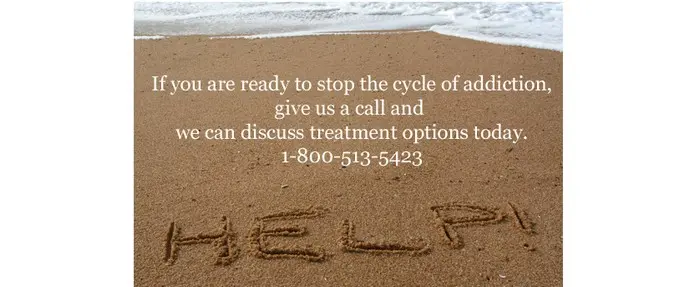
A brief history of dual diagnosis treatment programs
Dual diagnosis treatment, interventions, and “integrated” programs, that truly adapted to the needs of severely mentally ill chemical abusers (MICA) began in 1984 (Gigliotti,1986, Sciacca 1987a,1987b) in a New York State outpatient psychiatric facility. In 1985, these integrated treatment programs were implemented across multiple program sites (Sciacca,1987b). Concurrently, treatment and program elements were taught through training seminars in New York as well as nationally. Early articles by Gigliotti, 1986 and Sciacca, 1987a, 1987b, outlined these processes and documented their starting dates. In September 1986, the New York State (NYS) Commission on Quality of Care (CQC) released the findings of eighteen months of research. Its report (Sundram, Platt, Cashen, 1986) described the detachment and downward spiral of dually diagnosed consumers who were bounced among different systems with ” no definitive locus of responsibility.” As a result, Governor Cuomo designated the NYS Office of Mental Health as the lead agency responsible for coordinating collective efforts for this population. CQC proceeded to visit the dual diagnosis programs developed in 1984 and declared the treatment interventions, training, and integrated programs to be positive solutions to the dilemmas (Gigliotti, 1986).
Our certified addiction specialists are here to answer any questions that you may have. Please call us toll-free today. We are here for you 24 hours a day, 7 days a week.
Sources
Dual Diagnosis Wiki
Co-occurring disorders
Erik Epp – Content Author
